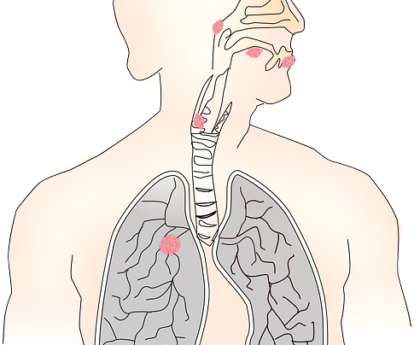How to Improve Brain Health
Brain health is a crucial aspect of overall well-being, influencing everything from memory and cognitive function to emotional regulation and physical coordination. As the brain is the command center of the body, maintaining its health is vital for leading a fulfilling and productive life. In this comprehensive guide, we will delve into various strategies and lifestyle changes that can significantly enhance brain health.
Understanding Brain Health
Before we explore the methods to improve brain health, it is essential to understand what brain health entails. Brain health refers to the ability to perform all mental processes of cognition, including the ability to learn, remember, and reason. It also includes emotional and psychological well-being, which can be impacted by stress, mood disorders, and other factors.
Key Components of Brain Health
- Cognitive Function: This includes memory, learning, problem-solving, and decision-making abilities.
- Emotional Health: This pertains to managing stress, mood, and emotional well-being.
- Physical Health: Good physical health supports brain function, including proper blood flow and oxygenation.
- Social Well-being: Healthy relationships and social interactions contribute to mental and emotional health.
Strategies to Improve Brain Health
1. Healthy Diet
Nutrition plays a fundamental role in maintaining brain health. The brain requires a steady supply of nutrients to function optimally. Here are some dietary tips:
- Omega-3 Fatty Acids: Found in fatty fish like salmon, flaxseeds, and walnuts, omega-3 fatty acids are crucial for brain health. They support cognitive function and reduce inflammation.
- Antioxidants: Foods rich in antioxidants, such as berries, dark chocolate, and leafy greens, protect the brain from oxidative stress and inflammation.
- Vitamins and Minerals: B vitamins (especially B6, B12, and folic acid) are essential for brain health. Vitamin E, found in nuts and seeds, is also beneficial.
- Hydration: Staying well-hydrated is critical for maintaining cognitive function.
2. Regular Exercise
Physical activity is not only good for the body but also for the brain. Exercise increases blood flow to the brain and stimulates the release of brain-derived neurotrophic factor (BDNF), which supports neuron health.
- Aerobic Exercise: Activities like walking, running, swimming, and cycling improve cardiovascular health and promote the growth of new brain cells.
- Strength Training: Building muscle strength can also boost brain health by improving blood flow and reducing insulin resistance.
- Mind-Body Exercises: Practices like yoga and tai chi improve mental focus, reduce stress, and enhance emotional well-being.
3. Mental Stimulation
Keeping the brain engaged with challenging activities can enhance cognitive function and delay the onset of age-related cognitive decline.
- Puzzles and Games: Crossword puzzles, Sudoku, and strategy games stimulate different parts of the brain.
- Learning New Skills: Taking up new hobbies, learning a new language, or playing a musical instrument can create new neural connections.
- Reading and Writing: Engaging in regular reading and writing activities can improve vocabulary, comprehension, and critical thinking skills.
4. Quality Sleep
Adequate sleep is essential for brain health. During sleep, the brain clears out toxins and consolidates memories.
- Sleep Hygiene: Maintain a consistent sleep schedule, create a restful environment, and avoid screens before bedtime.
- Address Sleep Disorders: Conditions like sleep apnea can impair cognitive function and should be treated.
5. Stress Management
Chronic stress can negatively impact brain health by contributing to inflammation and impairing cognitive function.
- Mindfulness and Meditation: These practices can reduce stress, improve concentration, and enhance emotional regulation.
- Deep Breathing and Relaxation Techniques: Techniques such as progressive muscle relaxation can help manage stress.
- Time Management and Prioritization: Organizing tasks and setting realistic goals can reduce stress levels.
6. Social Connections
Strong social ties are linked to better brain health and a lower risk of cognitive decline.
- Social Activities: Participating in group activities, clubs, or community events can enhance social well-being.
- Healthy Relationships: Nurturing relationships with family and friends provides emotional support and mental stimulation.
- Volunteering: Helping others can boost mood and provide a sense of purpose.
7. Avoiding Harmful Habits
Certain lifestyle choices can negatively affect brain health. It is essential to avoid or minimize these risks.
- Smoking: Smoking is linked to a higher risk of cognitive decline and dementia.
- Excessive Alcohol Consumption: Limit alcohol intake to prevent brain damage.
- Drug Abuse: Illicit drugs can have severe adverse effects on brain function and mental health.
8. Regular Health Check-ups
Regular medical check-ups can help detect and manage conditions that may affect brain health, such as high blood pressure, diabetes, and high cholesterol.
- Chronic Disease Management: Properly managing chronic conditions can reduce the risk of cognitive impairment.
- Mental Health Support: Seeking help for mental health issues like depression and anxiety can improve overall brain health.
Emerging Trends and Research in Brain Health
Neuroplasticity
Neuroplasticity refers to the brain’s ability to reorganize itself by forming new neural connections throughout life. Engaging in activities that challenge the brain can promote neuroplasticity and enhance cognitive function.
Brain-Computer Interfaces (BCIs)
Research into BCIs is exploring how technology can be used to support brain health. These interfaces may help individuals with neurological conditions by enabling direct communication between the brain and external devices.
Nutraceuticals
Nutraceuticals are foods or food products that provide medical or health benefits. Some supplements, such as omega-3 fatty acids, curcumin, and ginkgo biloba, are being studied for their potential to support brain health.
Mindfulness-Based Cognitive Therapy (MBCT)
MBCT combines traditional cognitive behavioral therapy with mindfulness strategies. It has shown promise in reducing the risk of depression relapse and enhancing cognitive function.
Conclusion
Improving brain health requires a holistic approach that encompasses diet, exercise, mental stimulation, quality sleep, stress management, social connections, and avoiding harmful habits. By integrating these strategies into daily life, individuals can enhance their cognitive function, emotional well-being, and overall quality of life. As research continues to advance, new and innovative methods for supporting brain health will emerge, offering even more opportunities to maintain and improve this vital aspect of our well-being.
Remember, it’s never too late to start taking steps towards better brain health. Whether you’re young or old, adopting these practices can lead to a healthier, more vibrant mind.





